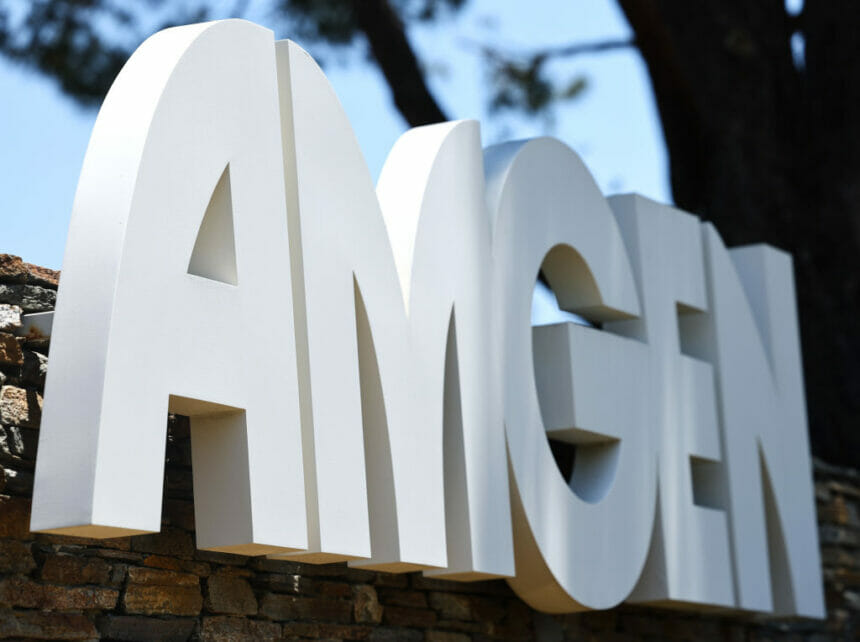The Federal Trade Commission has allowed Amgen to proceed with its $27.8 billion acquisition of Horizon Therapeutics, months after challenging the merger as a sign of rampant consolidation in the pharma space.
CNBC first reported Friday morning that the agency reached a deal with the California-based pharma giant to allow the purchase of the Irish biotech to proceed.
Both the FTC and Amgen issued statements announcing the settlement, which prohibits Amgen from bundling its products with either Horizon’s Tepezza, Krystexxa, or medications used to treat thyroid eye disease and chronic refractory gout.
Additionally, Amgen “may not condition any product rebate or contract terms” related to products on sale or position either one of these drugs. The company is also prohibited from using any product rebate or contract term to “exclude or disadvantage” any product that would compete with Tepezza or Krystexxa.
“Consolidation in the pharmaceutical industry has given companies the power and incentive to engage in exclusionary rebating practices, which can lead to sky-rocketing prices on essential medications,” said Henry Liu, director of the FTC’s Bureau of Competition, in a statement. “Today’s proposed resolution sends a clear signal that the FTC and its state partners will scrutinize pharmaceutical mergers that enable such practices, and defend patients and competition in this vital marketplace.”
In a separate press release, Amgen stated that it and Horizon expect to jointly file stipulated proposed orders to dismiss the preliminary injunction motion from the FTC and dissolve the temporary restraining order in the U.S. District Court for the Northern District of Illinois. Both organizations also will seek final approvals required under Irish law to close the acquisition by year’s end.
The reported regulatory greenlight marks a sudden turn in what was one of the most pivotal business developments the industry had seen this year.
At the end of 2022, Amgen bested rival drugmakers Sanofi as well as Johnson & Johnson in a widely-watched sweepstakes to acquire Horizon. The company reached an agreement to buy the rare-disease biotech for a cash offer of $116.50 per Horizon share, marking a 48% premium.
However, in mid-May, the FTC sued Amgen to halt one of the industry’s most significant mergers of the year. The agency cited consolidation among pharmaceutical companies, the potential for Amgen to bundle its medicines cross-market and hike drug prices as its reasoning for stopping the proposal.
“Today’s action — the FTC’s first challenge to a pharmaceutical merger in recent memory — sends a clear signal to the market: The FTC won’t hesitate to challenge mergers that enable pharmaceutical conglomerates to entrench their monopolies at the expense of consumers and fair competition,” FTC Bureau of Competition Director Holly Vedova said in a statement at the time.
However, Amgen CEO Robert A. Bradway remained steadfast in proceeding with the deal, stating in the company’s most recent earnings report released in August that it expected to close the merger by mid-December.
After months of legal wrangling, the FTC changed its tone earlier this week by pausing a challenge to the deal in order to allow the agency’s commissioners to decide whether to settle the case and allow Amgen to go through with the deal with conditions.
Though the FTC has taken a more active approach in stepping up to large-scale mergers under Commissioner Lina Khan, it hasn’t always been successful.
In July, a federal judge denied the FTC’s attempt to stop Microsoft from buying Activision Blizzard for $69 billion.
Stock prices for both Horizon and Amgen rose slightly in pre-market trading in light of the reported settlement.
This is a developing story, additional details will be included as information becomes available.







